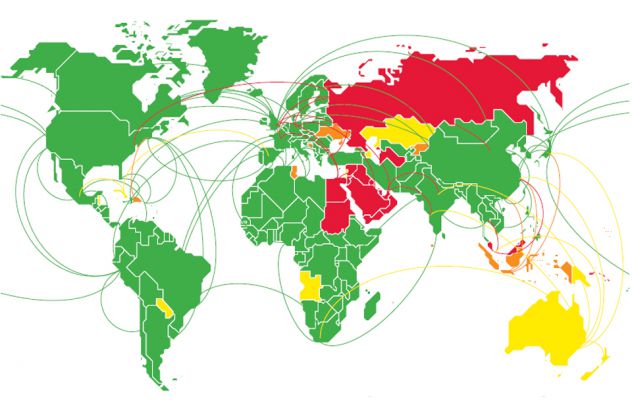By Haruna Gimba
The United Nations Programme on HIV/AIDS and the United Nations Development Programme (UNDP) have urged the countries to keep the promises made in the 2016 United Nations Political Declaration on Ending AIDS to remove all forms of HIV-related travel restrictions.
Travel restrictions based on real or perceived HIV status are discriminatory, prevent people from accessing HIV services and propagate stigma and discrimination, according to the UN agencies.
Health Reporters gathered that since 2015, four countries; Belarus, Lithuania, the Republic of Korea and Uzbekistan have taken steps to lift their HIV-related travel restrictions;
The UNAIDS interim Executive Director, Gunilla Carlsson said travel restrictions on the basis of HIV status violate human rights not effective in achieving the public health goal of preventing HIV transmission.
She said: “UNAIDS calls on all countries that still have HIV-related travel restrictions to remove them.”
The Director of UNDP’s HIV, Health and Development Group, Mandeep Dhaliwal said HIV-related travel restrictions fuel exclusion and intolerance by fostering the dangerous and false idea that people on the move spread disease.
“The 2018 Supplement of the Global Commission on HIV and the Law was unequivocal in its findings that these policies are counterproductive to effective AIDS responses,” he said.
Out of the 48 countries and territories that maintain restrictions, at least 30 still impose bans on entry or stay and residence based on HIV status and 19 deport non-nationals on the grounds of their HIV status. Other countries and territories may require an HIV test or diagnosis as a requirement for a study, work or entry visa.
The majority of countries that retain travel restrictions are in the Middle East and North Africa, but many countries in Asia and the Pacific and eastern Europe and central Asia also impose restrictions. The Human Rights Council, meeting in Geneva, Switzerland, this week for its 41st session, has consistently drawn the attention of the international community to, and raised awareness on, the importance of promoting human rights in the response to HIV, most recently in its 5 July 2018 resolution on human rights in the context of HIV.
The 48 countries and territories that still have some form of HIV related travel restriction are: Angola, Aruba, Australia, Azerbaijan, Bahrain, Belize, Bosnia and Herzegovina, Brunei Darussalam, Cayman Islands, Cook Islands, Cuba, Dominican Republic, Egypt, Indonesia, Iraq, Israel, Jordan, Kazakhstan, Kuwait, Kyrgyzstan, Lebanon, Malaysia, Maldives, Marshall Islands, Mauritius, New Zealand, Oman,Palau, Papua New Guinea, Paraguay, Qatar, Russian Federation, Saint Kitts and Nevis.
Others are: Samoa, Saudi Arabia, Saint Vincent the Grenadines, Singapore, Solomon Islands, Sudan, Syrian Arab Republic, Tonga, Tunisia, Turkmenistan, Turks and Caicos, Tuvalu, Ukraine, United Arab Emirates and Yemen.




